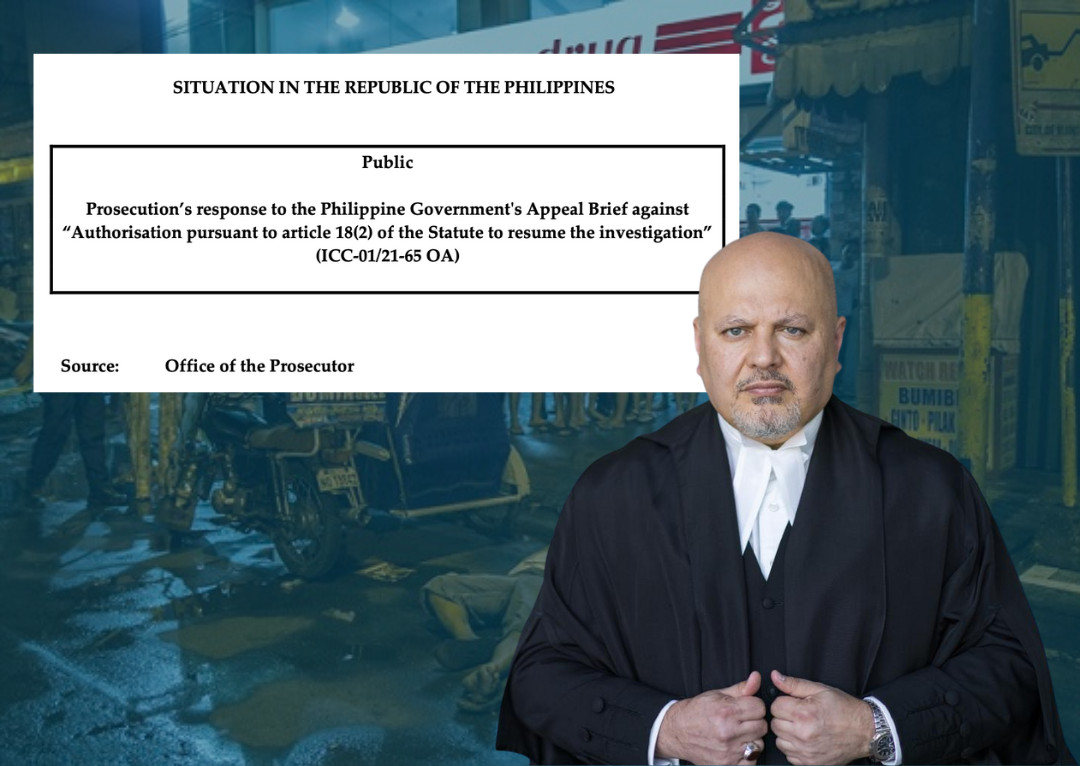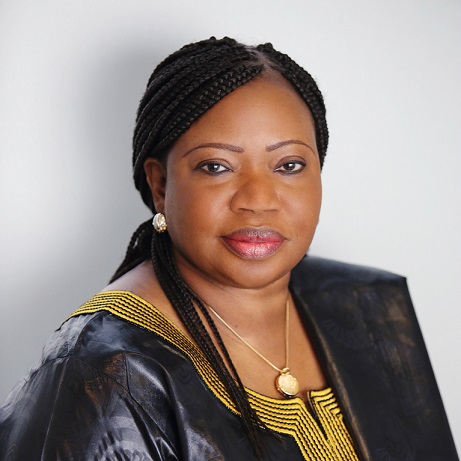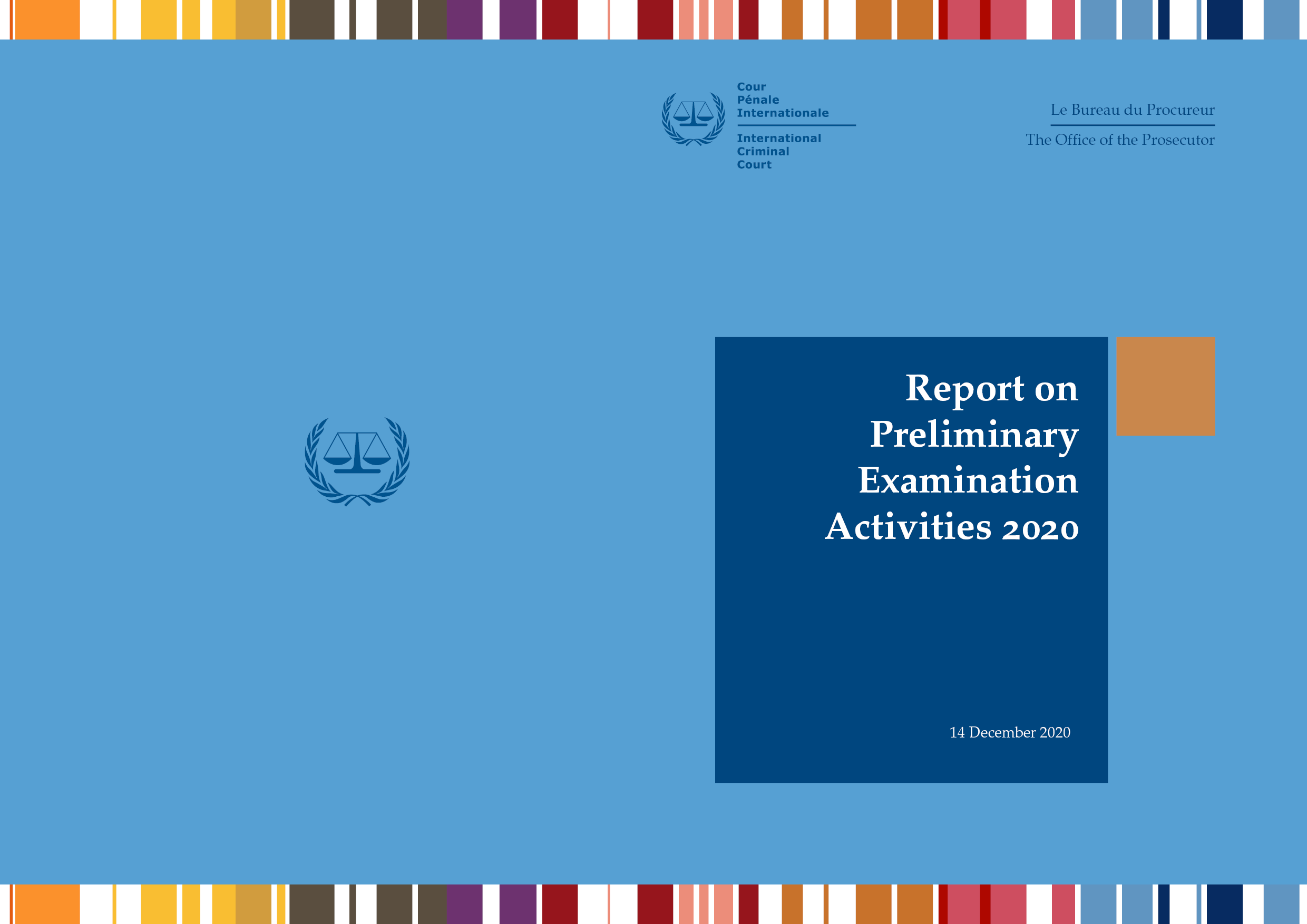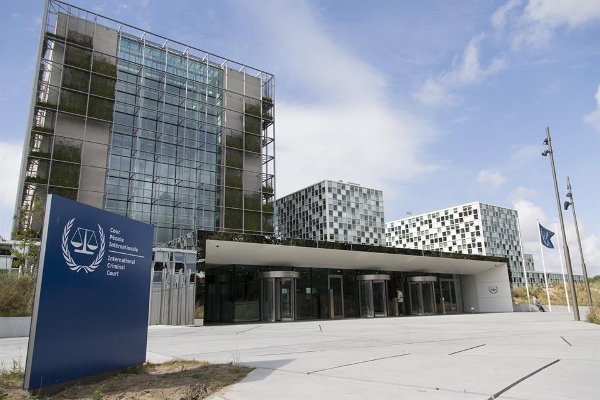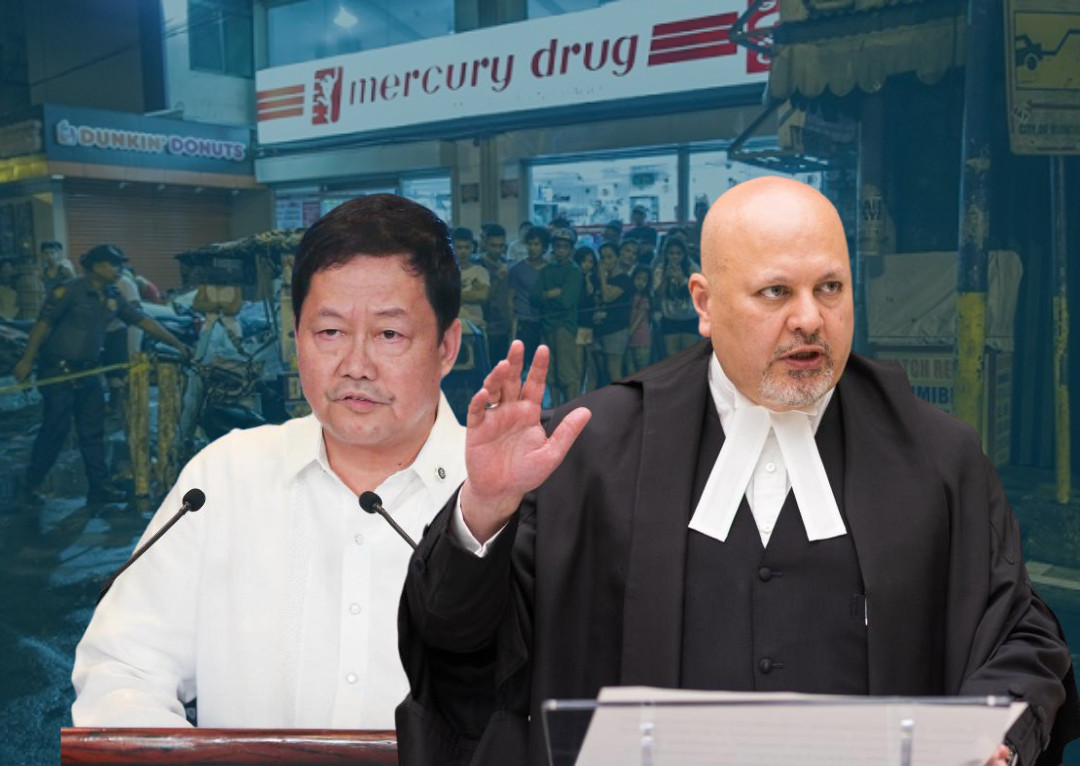International Criminal Court (ICC) Prosecutor Karim Khan has insisted that the “extremely serious” drug-related crimes committed during the Duterte administration were encouraged by the former president himself and other top state officials.
In a petition filed on April 4, Khan urged the ICC’s Appeals Chamber to uphold the Court’s earlier decision to resume its investigation into these alleged crimes against humanity and reject the Philippine government’s appeal to reverse the ruling.
“Nothing about these crimes, committed in large part by law enforcement personnel entrusted with protecting citizens from violence, suggests that the potential cases before the Court are of marginal gravity. To the contrary, they are extremely serious, and appear to have been at the very least encouraged or condoned by high-level government officials, up to and including the former [p]resident] (Rodrigo Duterte),” Khan wrote in his 59-page response to the appeal filed by Office of the Solicitor General (OSG).
Based on available information, the prosecutor noted that as many as 30,000 civilians — including children – were killed by the police or unidentified individuals “apparently acting in coordination with police.”
Contrary to the OSG’s claim that the Jan. 26 ruling of the Pre-Trial Chamber I (PTC), a judicial body of the ICC, failed to consider if these alleged drug war crimes were of serious gravity, Khan stressed that they were “sufficiently grave” and fulfill all the elements of offfenses under the Court’s jurisdiction. He added that the OSG had “misinterpreted” the ICC’s jurisdictional framework in its arguments so there is no need for the Appeals Chamber to consider the government’s position. (Read ICC resumes full-blown investigation into Duterte administration’s drug war)
Despite the ICC prosecution’s claim that the killings and other crimes in the country from Nov. 1, 2011 to March 16, 2019 and those blamed on the Davao Death Squad were state-sponsored, it noted that only low-ranking police officers have been charged in court.
“Based on the materials provided by the Philippines, the [Pre-Trial] Chamber [I] concluded that the very few domestic initiatives which were substantiated did not sufficiently, or at all, mirror, the Court’s intended investigation,” Khan wrote.
Khan also responded to the OSG’s argument of the PTC’s failure to properly assess the Philippine government’s willingness and ability to “genuinely carry out the investigation,” saying that the Philippine government took the chamber’s use of the word “genuine” out of context. (Read PH notes errors in ICC ruling on drug probe, presses for reversal)
Since the PTC ordered the resumption of the ICC investigation in January, several officials have made inaccurate statements regarding the ICC’s jurisdiction to probe these crimes. (Read Disinformation about ICC echoes Duterte’s defense, targets prosecutors).
The government has likewise suffered setbacks in its struggle to fend off the ICC’s controversial probe after the Appeals Chamber dismissed both its petition to bar some 90 victims of the bloody drug war to file their positions on the OSG’s appeal and for the Court to suspend its investigation pending a decision on the reversal of the PTC’s ruling for the Prosecutor to proceed with his work on the complaints.
Read Khan’s full response here.
